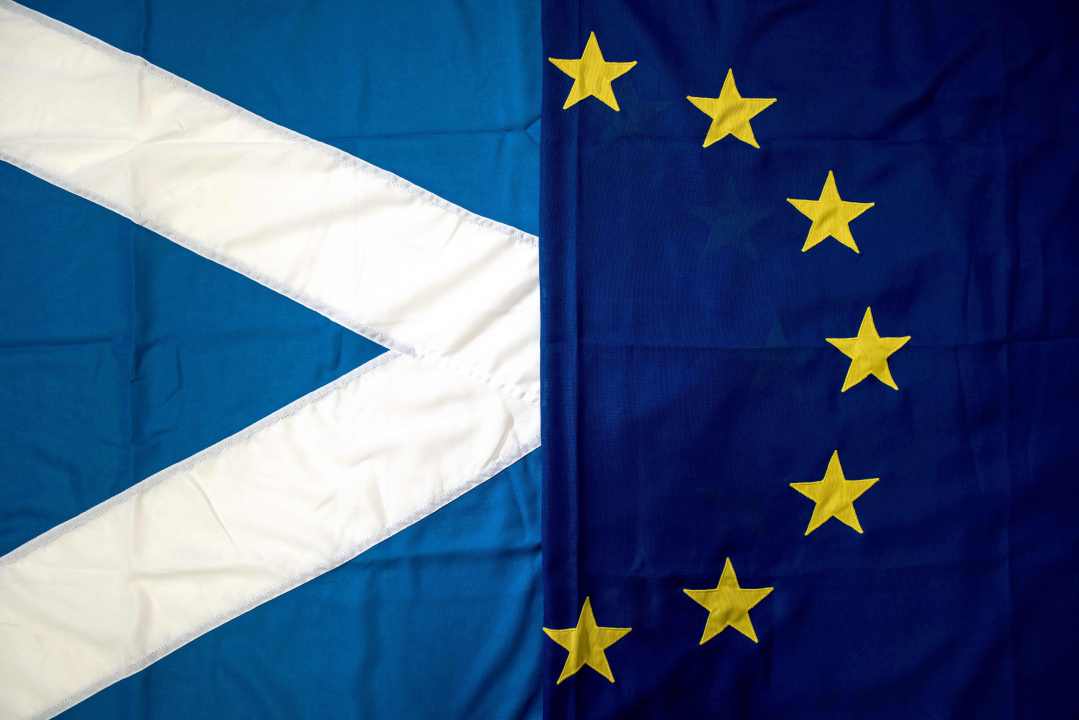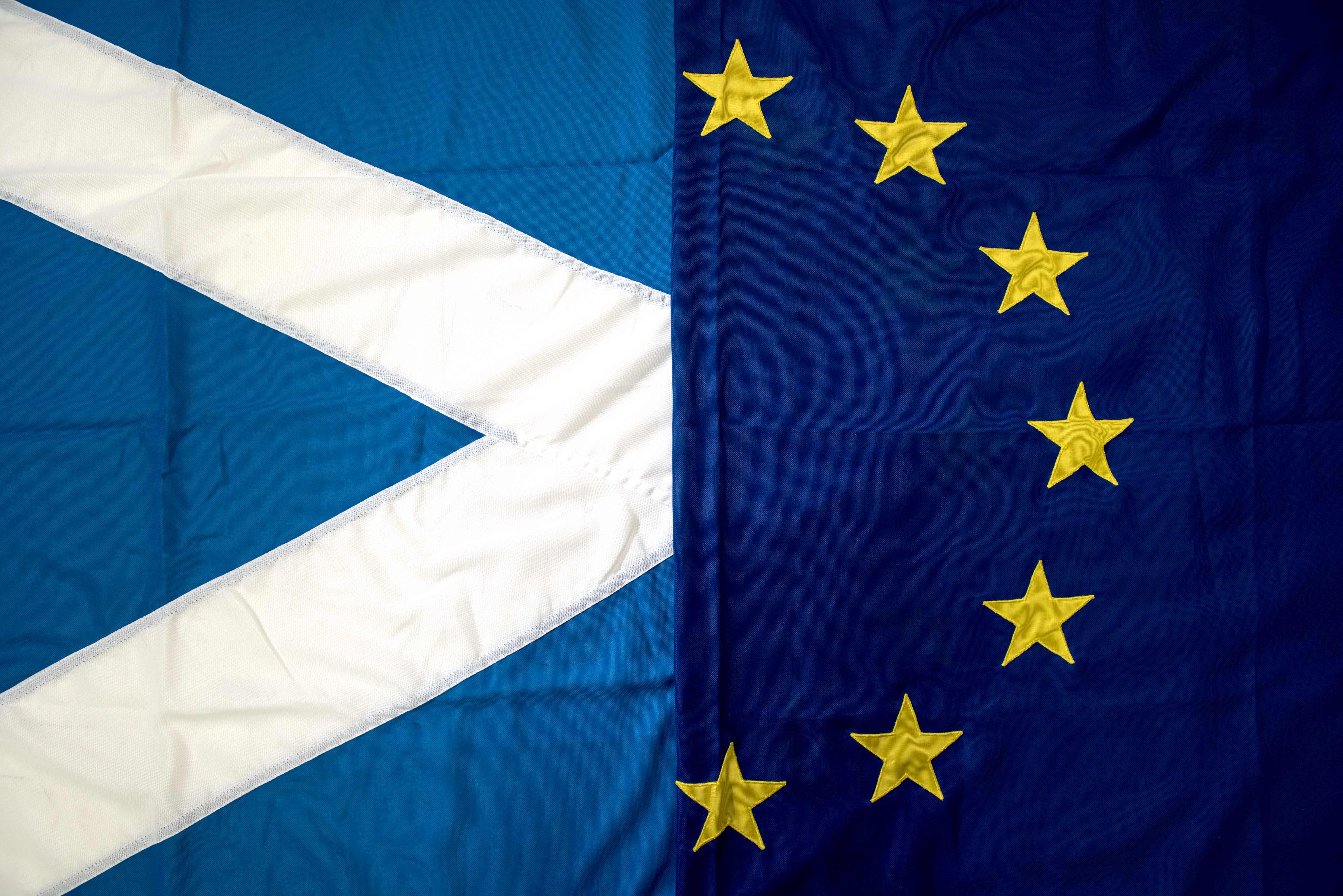There was a Scooby Doo moment in Alex Salmond’s campaign launch on Tuesday. Something that made me think: ‘Ruh-roh’. The new leader of the Alba party was setting out his stall ahead of the 6 May Holyrood election and concentrating mostly on tactics. Voting for the SNP in the constituencies and Alba on the proportional list ballot, he contended, could elect a Scottish parliament with a ‘supermajority’ for independence.
Thereafter — in fact, in week one of that new parliament — he would expect the Scottish government to open negotiations with Whitehall for the dismantling of the United Kingdom. He was not averse to another referendum like the one he lost in 2014, but was open to other avenues, including legal action and ‘peaceful and popular demonstration’. If Boris won’t let you go on holiday this summer, come to Scotland, where we’ll be combining the annual rainfall of Colombia with the political climate of Catalonia.
But to the ‘ruh-roh’. During the digital media huddle, Salmond had an answer to every question except one. Neil Pooran from the Press Association noted that Alba hadn’t yet taken a stance on the EU. Would it be Alba’s policy to rejoin? Salmond promised a policy paper to come at an unspecified time before pivoting onto the party’s other policies, which also aren’t all that well fleshed-out.
Not all Scottish nationalists have been quite so ready to embrace Brussels
Europe is a problem for Alba. While ‘independence in Europe’ has been SNP policy since 1988, it was not a matter on the lips of the party’s grassroots or its voters until the EU referendum. There are hundreds of thousands of people all across Scotland who became committed Europeans the day after England voted to leave. They even added a little circle of stars to their saltires.
But not all Scottish nationalists have been quite so ready to embrace Brussels, even as a strategic calculation. Around 38 per cent of those who voted SNP in the 2016 Holyrood election went on to vote leave in the referendum. While this view might be out of favour in the court of Sturgeon, it was once a mainstream outlook within the party. Independence was not about exchanging the diktats of one distant parliament for another, it was full sovereignty. This mindset survived the Europeanisation of the party in key policy areas. As the political historian David Torrance noted in 2015: ‘The roll call of things the SNP doesn’t like about Europe is quite long: the single currency, Common Fisheries Policy and closer fiscal integration, which the present First Minister has several times made clear she doesn’t support.’
There is some crossover of those nationalists dissatisfied with Sturgeon’s carefully crafted image of pro-Europeanism and those dissatisfied enough with her strategy on independence to jump ship to Alba. Salmond will not wish to alienate these recruits but nor can he go too far in the opposite direction. Were a second EU referendum held now, 65 per cent of Scots would vote in favour of the bloc, up from 62 per cent in the original plebiscite. One way to split the baby would be to revive Salmond’s 2017 proposal that a separate Scotland apply to join the European Free Trade Association as part of a longer transition to an EU membership application. The EFTA route, he said at the time, didn’t have ‘anything like the difficulties of securing full European Union membership’.
An SNP still committed, in theory, to full EU membership and an Alba party advocating a temporary stay within EFTA would create tensions in the Scottish nationalist movement and confuse Brexit-related messaging in another referendum on independence (if Boris Johnson is foolish, weak or cowardly enough to grant them another one). The attack line about the big, bad ‘Westminster’ (that’s how they spell ‘England’ in the SNP) ‘dragging Scotland out of the EU against its will’ is weakened somewhat if there is any doubt about whether a breakaway Scotland would apply to join the EU.
When Salmond returned to frontline politics, I argued that his new venture could cause real problems for Sturgeon and here is one of them: in stirring Sturgeon-sceptic nationalists out of their quasi-religious loyalty to the SNP, there is a chance Salmond might also stir these apostates out of some of the assumptions that the old religion required them to profess. Prime among these is the doctrine that Scotland’s journey to statehood must include a stop in Brussels to drop off a tranche of powers, just regained from Westminster, at the door of the European Commission.
Just as Sturgeon’s toleration of cybernats and other hardliners in her party has come back to haunt her, with many drifting (or darting) over to Alba, so too might she come to regret her demagogic rhetoric about ‘Westminster’, about the imperative that decisions concerning Scotland be made by Scots, about how sharing power with another parliament is not co-operation but coercion. A movement that has spent decades demonising one union may have prompted some among its number to question the virtues of another.
The longer the Alba party stays in business, the likelier it is to shine a light on the fault lines of Scottish nationalism. Like I say, ruh-roh.








Comments